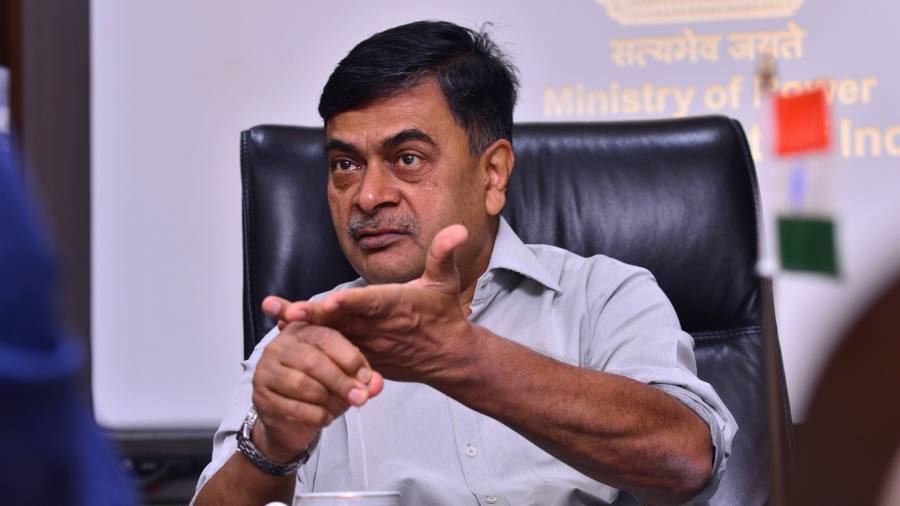The Indian power minister, Raj Kumar Singh, has criticized efforts by the US and Europe to subsidize their own renewable energy industries, stating that these actions amount to protectionism and hinder the climate ambitions of developing countries. Singh specifically highlighted the US Inflation Reduction Act and Europe’s green hydrogen auctions as examples of measures that undermine emerging economies like India. He called out the developed world for erecting barriers while lecturing others on the importance of free trade.
Singh’s criticism comes just days before Indian Prime Minister Narendra Modi’s state visit to the US, and he confirmed that he’s contemplating asking Modi to raise concerns about the Inflation Reduction Act with US President Joe Biden. He accused developed economies of hypocrisy for aggressively advocating the phase-out of coal, India’s primary energy source, while not applying the same level of urgency to other fossil fuels like oil and gas.
India has ambitious plans to transition to renewable energy, with a target of 500 gigawatts of renewable capacity by 2030. The country has already built over 160GW of renewable capacity and aims to reduce the share of coal in power generation from 70% to about half. To safeguard its renewables sector from Chinese competition, the Indian government has imposed import tariffs on solar components and introduced incentive programs, including a subsidy scheme for green hydrogen production.
However, experts argue that these efforts are overshadowed by the substantial subsidies provided by the Inflation Reduction Act, which offers over $350 billion in grants, tax credits, and loans for renewables. The US also provides significant manufacturer subsidies for green hydrogen, with estimates suggesting that India’s subsidy plan offers less than a third of what the US provides.
It’s worth noting that other countries, such as South Korea and France, have also expressed objections to the US climate finance law.
Prime Minister Modi’s visit to the US coincides with India and the US seeking to strengthen economic and military ties in response to China’s increasing assertiveness. Singh revealed that both sides are working towards finalizing an agreement on standardizing green hydrogen production standards and enabling cooperation.
Singh emphasized that India will not allow manufacturing to be shifted overseas in pursuit of greater subsidies. He stated that his country will not compromise on power availability for its growth and would impose duties that make it challenging for companies to sell back into India. While India has committed to achieving net zero emissions by 2070, it has refused to eliminate coal use due to the need to meet its rapidly growing energy demands. Singh also criticized rich countries for failing to fulfill their promise to provide $100 billion per year in climate finance to developing nations.
Overall, Singh’s remarks highlight the tension between developed and developing nations when it comes to renewable energy subsidies and trade barriers. It underscores the need for fair and equitable approaches to global climate action.
Denial of responsibility! VigourTimes is an automatic aggregator of Global media. In each content, the hyperlink to the primary source is specified. All trademarks belong to their rightful owners, and all materials to their authors. For any complaint, please reach us at – [email protected]. We will take necessary action within 24 hours.


